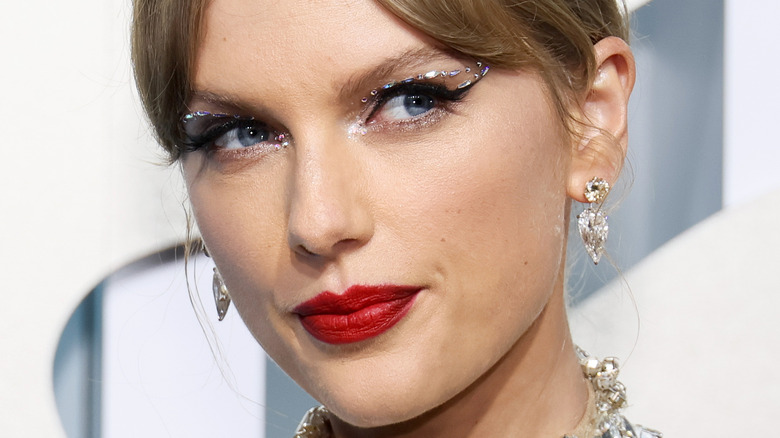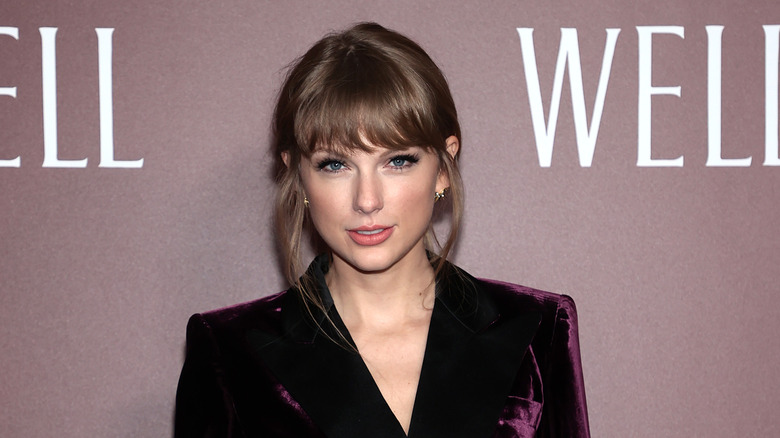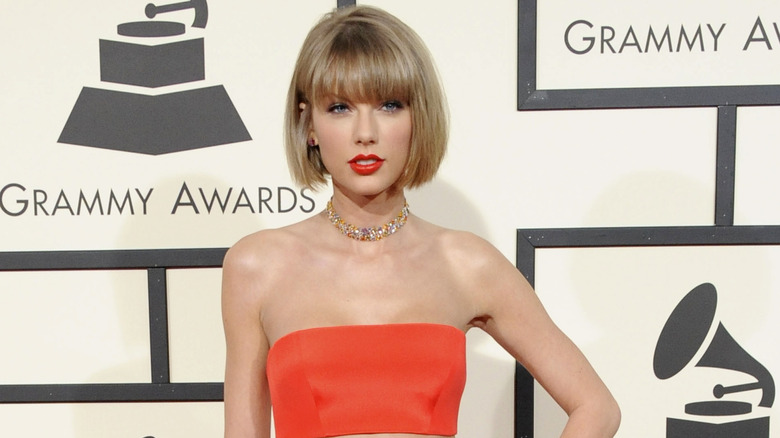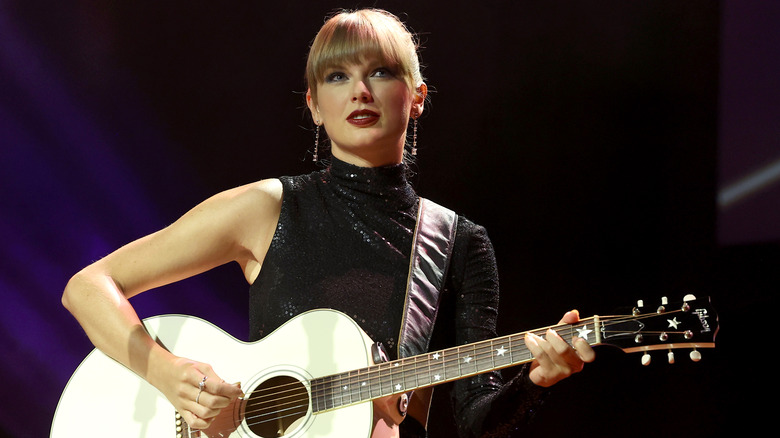Expert On Weight Stigma Speaks Out About Problematic Messaging In Taylor Swift's Anti-Hero Music Video
If you thought you were the only one who got too honest on main late at night, let us disabuse you of that notion. When the sun goes down, your nervous system automatically begins shifting into a "more relaxed and receptive" mode, per Elite Daily. So it's no surprise Taylor Swift's latest album, "Midnights," covers darker and more honest topics than she ever has before.
In "Midnights," Rolling Stone argues that Swift picks up "where the pure pop triptych of '1989,' 'Reputation,' and 'Lover' left off, a dazzling bath of synths complementing lyrics caught between a love story and revenge plot." When the clock struck midnight, a careful catalog of Swift's intrusive thoughts and nightmares about her relationships — past and present — as well as her public image came to light.
"You're on Your Own, Kid," for instance, explores Swift's journey from being the girl who stops waiting for the boy and goes and writes songs about him instead — and what it cost her on the road to fame (via Vox). As HITC notes, Swiftian lore says the fifth song on a Swift album is going to leave you the most emotionally wrecked. With lyrics like "I hosted parties and starved my body / Like I'd be saved by a perfect kiss," we're inclined to agree.
But, despite Swift directly calling out her own disordered eating habits in "You're on Your Own, Kid," another track from "Midnights" is creating controversy in the eating disorder community thanks to the accompanying music video.
Is Taylor Swift's Anti-Hero music video fatphobic?
In a video on Instagram, Taylor Swift shared that "Anti-Hero," the album's lead single, is one of her "favorite songs [she's] ever written." Moreover, Swift acknowledged she'd never "delved this far into my insecurities in this detail before." The music video — which Swift also notably wrote and directed — further showcases her "nightmare scenarios and intrusive thoughts," as the singer-songwriter explained on Twitter.
However, the "Anti-Hero" music video has also caused major controversy among Swift fans and body positivity advocates alike. "We know that most people in this country are fatphobic," Serena Nangia, the Marketing & Communications Manager at Project HEAL, a US-based eating disorder non-profit, wrote in an e-mailed statement, "and we also know that a lot of eating disorder behaviors are rooted in a fear of gaining weight."
Swift's fear is displayed in the music video as she steps on a bathroom scale and the word "fat" flashes in the place a number would usually be. In her hit Netflix documentary "Miss Americana," Swift revealed that "a picture of me where I feel like I looked like my tummy was too big" or "someone said that I looked pregnant" were major triggers for her (via The Guardian).
Nangia noted it's "important for people struggling with disordered eating to be able to express what they're feeling without judgment," adding that Project HEAL also believes it's "important that thin people in conversations about fatphobia ... hold an awareness of the impact they have."
Taylor Swift has struggled with body-image issues
Serena Nangia of Project HEAL told us that, considering Taylor Swift's recent, tentative steps towards opening up about her difficult relationship with food, she wasn't surprised to see her tackle the issue head-on in "Midnights." The first time Swift publicly addressed her troubled relationship with her body was in "Miss Americana." The singer admitted that, more often than not, she would obsess over how she looked in photographs and it would "just trigger me to just starve a little bit — just stop eating."
Addressing her struggles to accept her body wasn't something Swift originally wanted to do publicly. During an interview with Variety, she shared how she didn't think she'd be comfortable talking about how "unhealthy" her relationship with food and her body had been. Swift was also concerned that she wouldn't be as articulate as she "should be about this topic because there are so many people who could talk about it in a better way."
For Swift, and many others struggling with body dysmorphia or eating disorders like anorexia nervosa, compliments when she was at her skinniest were proof what Swift was doing was right. She took being celebrated for being able to fit into sample sizes "as a pat on the head."
Why Taylor Swift sharing her fears is so important
There's no question that society has a problematic relationship with the word "fat." For Taylor Swift, it's associated with some of her worst nightmares — and she's not alone. As PopSugar points out, many fans online weren't thrilled with watching Swift's apparent disgust at discovering she was "fat" in the "Anti-Hero" music video.
As one Twitter user contended, "Fat people don't need to have it reiterated yet again that it's everyone's worst nightmare to look like us." Serena Nangia of Project HEAL argued anybody struggling should have the space to discuss their issues, including Swift, explaining: "If we immediately judge someone for admitting that becoming fat is a fear of theirs (a common symptom of some eating disorders), then we risk alienating people who need help."
Back in 2020, Swift told Variety that she understood her relationship with her body and food a lot better now. When Swift was an unhealthy weight, she didn't understand there was a problem with feeling like she was going to pass out after performing, for example. "Now I realize," she said, "if you eat food, have energy, get stronger, you can do all these shows and not feel (enervated)."
Nangia added: "We hope the eating disorder community invites those struggling in their healing process to acknowledge their own fatphobia and fears while also encouraging people with significant influence, like Taylor Swift, to carefully navigate their unique positioning as related to the levels of marginalization they face."



